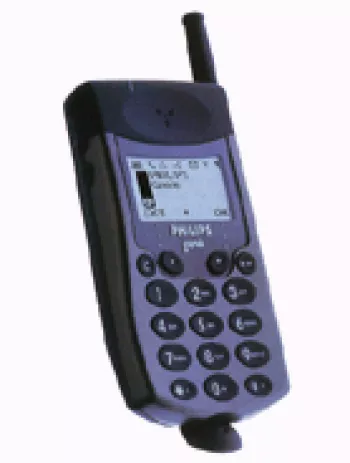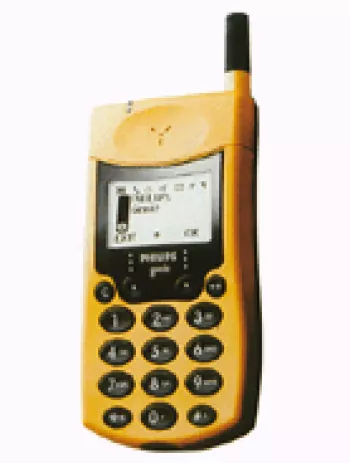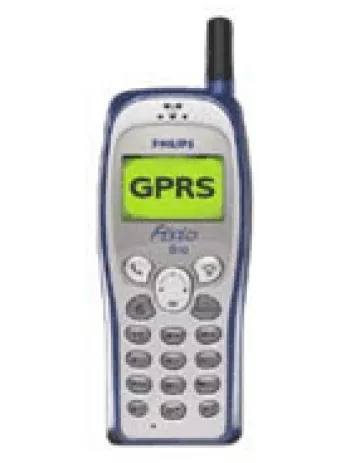
Overview
The Philips 330 is a classic feature phone that was announced in the second quarter of 2003. While modern smartphones have advanced considerably, the Philips 330 offers a glimpse into the minimalistic and functional design philosophy of early 2000s mobile phones. This device was designed for users who needed a reliable and straightforward communication tool, without the complexities and distractions of modern smartphones.
Network and Connectivity
The Philips 330 operates on GSM networks, specifically supporting the GSM 900 and 1800 bands. The phone does not support GPRS or EDGE technologies, which reflects the technological limitations of that era. There's no support for WLAN, Bluetooth, or any advanced networking features, positioning the Philips 330 as a basic communication device. The absence of these features is offset by the device’s ability to provide essential services like voice calls and basic messaging.
Design and Build
The Philips 330 features a compact and lightweight design, with dimensions of 83 x 43 x 22 mm and a weight of 79 grams. Its portability is one of its defining characteristics. The device is designed to fit comfortably in a pocket or bag without being cumbersome. The phone uses a Mini-SIM card, which was standard at the time of its release. As for aesthetics, Philips offered four different color options: Sparkling Blue, Lacquer White, Brilliant Silver, and Shining Red, allowing for some personalization.
Display
This handset comes with a monochrome graphic display, which is typical of feature phones from the early 2000s. The resolution is 101 x 80 pixels, spread across 8 lines. While this may seem limited by today’s standards, the display was adequate for simple tasks such as reading text messages and navigating the phone’s menu.
Memory
The Philips 330 is equipped with 256 KB of internal memory, without the possibility of expanding it using a microSD card. The storage is sufficient for storing a phonebook with up to 300 entries, including 8 fields per contact. The call records functionality allows for logging up to 10 dialed, 10 received, and 10 missed calls. Although the memory capacity may seem quite limited, especially when compared to modern devices, it was standard for its time and enough for the phone’s primary functions.
Sound and Alerts
The device does not feature a loudspeaker or a 3.5mm jack, which limits its functionality as a media device. It does, however, support vibration alerts and downloadable polyphonic ringtones which were a popular feature among users at the time of its release, providing a level of customization for incoming calls and messages.
Communication Features
In terms of communication, the Philips 330 supports SMS, EMS, and email, which covers the basic needs for text communication. The device includes a WAP 1.2.1 browser, providing limited access to the internet. This was more of a novelty at the time, as mobile internet was still in its infancy and not widely used.
Entertainment and Additional Features
The entertainment options on the Philips 330 are limited to a single game: Arcanoid. This basic breakout-style game offered simple entertainment for users during short breaks. The device does not support Java applications, which means it cannot run additional software beyond its built-in features. Basic utilities such as a clock and an alarm are included, ensuring the phone can serve as a functional everyday device.
Battery Life
The Philips 330 is powered by a removable Li-Ion 570 mAh battery. The battery life is impressive, with a standby time of up to 400 hours and a talk time of up to 4 hours and 30 minutes. This long-lasting battery life underscores the efficiency of feature phones, which focus on essential functions without drawing significant power for high-end processors or large displays.
Conclusion
Overall, the Philips 330 offers a historical look at mobile technology from the early 2000s. Its simplicity, durability, and functionality made it a quintessential companion for users who required a device for the basics of mobile communication. Although it lacks the advanced features and capabilities of modern smartphones, the Philips 330's design and feature set reflect its purpose as a reliable and straightforward tool.
Key Features of Philips 330
- Compact Design: Measures 83 x 43 x 22 mm and weighs only 79 g, making it portable and easy to carry.
- Monochrome Graphic Display: Features a resolution of 101 x 80 pixels, displaying up to 8 lines of text.
- Phonebook Capacity: Can store up to 300 contacts with 8 fields each, providing ample space for your contacts.
- Long Stand-by Time: Offers up to 400 hours of stand-by time with its removable Li-Ion 570 mAh battery.
- Talk Time: Provides up to 4 hours and 30 minutes of talk time.
- Color Variants: Available in four different colors - Sparkling Blue, Lacquer White, Brilliant Silver, and Shining Red.
- Messaging Support: Supports SMS and EMS, as well as Email capabilities.
- WAP Browser: Includes a WAP 1.2.1 browser for basic internet browsing.
- Built-In Game: Comes with 1 pre-installed game - Arcanoid.
- Downloadable Ringtones: Supports vibration and the capability to use downloadable polyphonic ringtones.
Philips 330 Drawbacks
- No GPRS support
- No EDGE support
- Discontinued model
- Monochrome graphic display
- No external memory card slot
- Low internal memory (256 KB)
- No camera feature
- No loudspeaker functionality
- No 3.5mm headphone jack
- No WLAN, Bluetooth, or GPS
- No built-in radio
- Limited to WAP 1.2.1 browser
- Supports only SMS, EMS, and basic Email
- No Java support for additional applications or games


View Also
More Phones
All Rights Reserved +14266 Phones © Mobilawy 2025

























